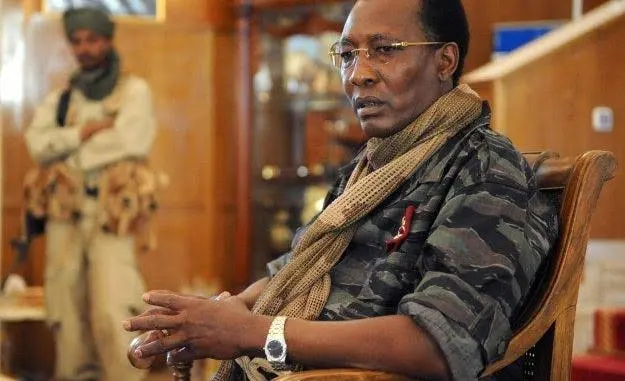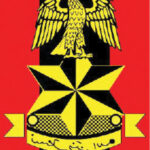The political landscape in the Sahel started changing dramatically in 2020 with the return of the military. It took a dramatic turn in Chad with the death of Chadian President Idris Derby in combat followed by a takeover by his son in April 2021. In August 2020 Assimi Goitre carried out the first phase of a coup in Mali. The Guinea regime fell to the military in September 2021 and a coup took place in Burkina Faso in September 2022.
The question that is posed is whether we are back to the era in which those who can shoot their way into power would be the ruling class. It would be recalled that on December 2, 1990, Idriss Deby had shot his way into Chad’s presidential palace after an epic battle with his former boss and mentor turned enemy, Hisene Habre. For his 30 years in power, it has been a series of rebellions, bloody conflicts, intrigues and coup attempts.
Alongside the instability, elections have been holding and he was killed the day after he had been declared winner of the recently concluded election and was to be sworn in for his sixth term. Alas the self-declared Field Marshall was no more so his 37-year-old son, General Mehemet Idriss Deby, organised a coup the same day, April 21, 2021 and suspended the constitution, dissolved parliament and set up a ruling military council, for which, he is the supreme commander. He promised to hand over power in October 2022 and when he did not and people demonstrated against him, he sent out the army and dozens of protesters were killed.
The Malian tragedy of chronic instability and violence has been exacerbated by the coup d’état, which began on the night of May 24, 2021 when the army led by Vice President Assimi Goita arrested President Bah N’daw and Prime Minister Modar Ouane. Assimi Goita, the head of the junta that led the 2020 Malian coup d’état, announced that N’daw and Ouane were stripped of their powers and that new elections would be held in 2022. It is the country’s third coup d’état in 10 years. Nine months prior to the 2021 coup, in August 2020, President Ibrahim Boubacar Keïta was removed from power by a military alliance. This followed months of unrest in Mali following irregularities in the March and April parliamentary elections and outrage against the kidnapping of opposition leader Soumaila Cissé.
Gusau warns referees, match commissioners against corrupt practices
Poly workers protest non-payment of salary, pension arrears
In Guinea, the coup against President Alpha Conde was organised by Lieutenant-Colonel Mamady Doumbouya, his kinsman who he had appointed head of the well-resourced and armed elite brigade to ensure that no coup against him succeeds. The then 83-year-old president had been in the democratic opposition for decades until he got to power at 72. After 10 years and two terms, the expectation was that he would take a well-deserved rest. Sadly, he had no intention of leaving power while alive and was ready to use under hand tactics to smash the opposition while abusing his incumbency powers to rig the elections. He worked hard on it.
In August 2019, he spent his Eid vacation with President Buhari in his home town in Daura seeking Nigeria’s support. The advice he received everywhere was:” old man; go to your village and rest”, he ignored all advice leaving the coup option as the sole viable way to unseat his dictatorship.
What these coups portend is the beginning of another cycle of political instability in the Sahel and West Africa. The collapse of democracy signalled the lost expectations that military coups would be deterred by Article 30 of the African Union Constitutive Act on the unacceptability of unconstitutional changes of government. The tragedy is that Africa learnt an important lesson from the decades of military rule and authoritarian single-party regimes that started transiting into multi-party democracies in 1990. That liberal multi-party democracy is part of a set of variables that could be a veritable tool for conflict prevention and peace building in addition to its use value in the form of the freedoms, rights and citizenship it provides.
Over the past decade, commitment to these principles and above all practices have waned as a result of lack of respect for them by so many African presidents. Our problem is sabotage by many African leaders with responsibility for implementing them. The result is that elections and democracy are being emptied of their essence and African citizens are beginning to question the meaning of elections without choice and democracy without dividends.
It is in this context that conflicts, including banditry, terrorism and violent extremism have grown and spread in the continent. The consequence is that Africa is currently facing intense conflicts due to economic and social grievances on the one hand and violent religious extremism on the other. There is a breakdown of the democratic and even the political order in some countries in the region and military interventions have made a return. Improving governance to create conditions for peace has therefore become an urgent need.
The current crisis in the Sahel is linked to the geopolitics of the return of the military. Mali has exercised regional leadership in seeking legitimacy for the coup by attacking the former hegemon France, accused of sponsoring and sustaining violent extremism in the Sahel. The junta has succeeded in expelling France from the country in a very dramatic way and has brought in the Russian Wagner mercenary group.
Within the context of the current proxy war in Ukraine between the West under American leadership and Russia and its allies, the cold war is now fully back. What is important is that over the past decade, suspicion of French “pro-violent extremist” action has been spreading and deepening throughout the Sahel. Many Sahelians believe that the failure of France to defeat the extremist since 2012 is the plan rather than an unexpected outcome. This belief is comforted by massive messaging, often with fake news to this effect.
Now there is a contagion effect with Burkina Faso likely to follow the example of Mali in expelling the French. In Niger, where the leadership has stood resolutely with France, there is pressure emanating from street demonstrations to break with France. The ability of the administration to survive politically would depend on how it is able to address popular concerns on this issue. The emergence of this new geopolitics might well create conditions for the escalation of violent extremism and Nigeria would without doubt be affected by these dynamics.
The most serious threat to Nigeria is the spread of the Sahelian brand of violent extremism to North West and North Central Nigeria alongside Boko Haram. In this regard, it’s worthy of note that the franchise model that has been implemented by the Islamic State since it ran into problems in Iraq and Syria has arrived in Nigeria.
In his article in the July 2021 edition of Newsweek, Bulama Bukarti has called the new developments “gig terrorism” characterised by franchising dissident groups in Africa – Sahel countries including Nigeria and Cameroon as well as Central African Republic, Mozambique, DR Congo and Somalia as long as they have similar ideologies even if their modes of operations differ.
It is in this context that over the past few years, the Boko Haram insurgency has been seeking contact points and collaboration with growing criminal banditry in North West Nigeria, especially in the states of Zamfara, Katsina. Kaduna and Niger. They have been working hard to develop their franchise and convert bandits to ideologically focused terrorists. This poses a major challenge of broadening the conflict and overwhelming Nigeria’s security forces.
The same phenomenon is happening in the Sahel zone, around the three-frontier zone between the borders of Niger, Burkina Faso and Mali. If the insurgents in both the North East and North West of Nigeria link up operationally with the ones in Niger, Burkina Faso and Mali, we would enter the worst-case scenario, which we must do all in our powers to prevent.

 Join Daily Trust WhatsApp Community For Quick Access To News and Happenings Around You.
Join Daily Trust WhatsApp Community For Quick Access To News and Happenings Around You.

